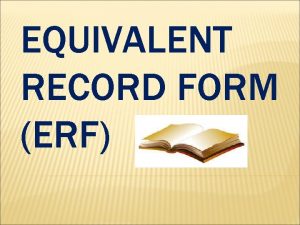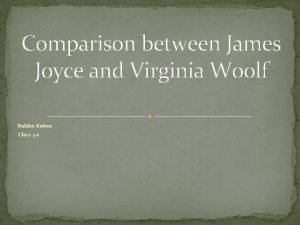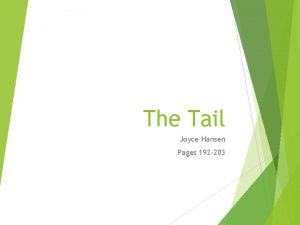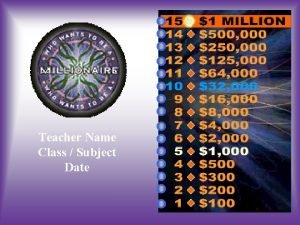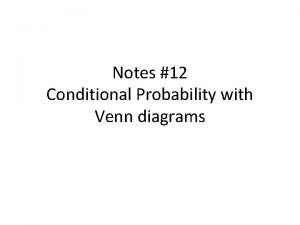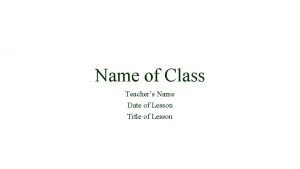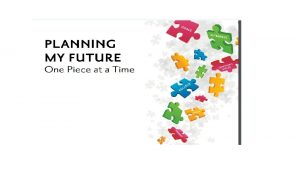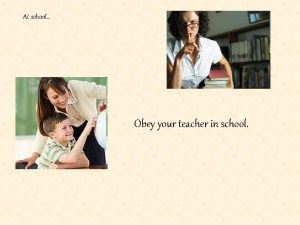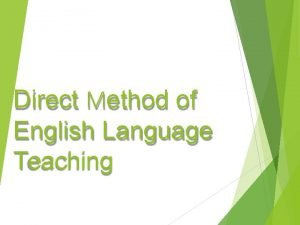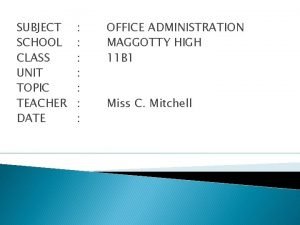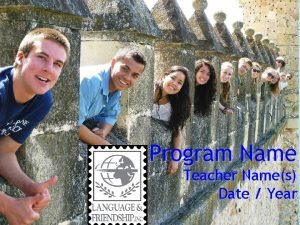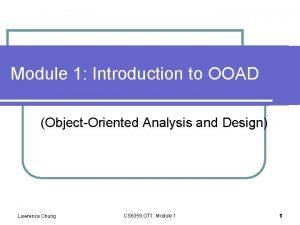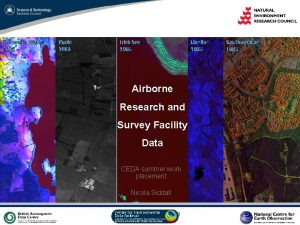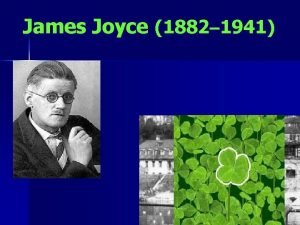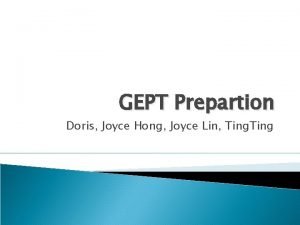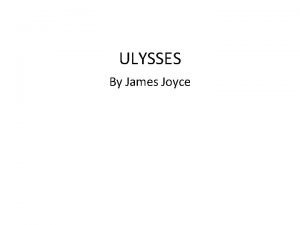Joyce Hallam HT and class teacher Hawkshead Esthwaite















- Slides: 15

Joyce Hallam HT and class teacher Hawkshead Esthwaite Primary

If the room is a world map – establish north- stand in a country you think you have, in some way, been connected to in the last week. . . explain to a partner how. .

CONFERENCE QUESTIONS: How do young children connect with the world around them and how could this change in the future? PAIR AND SHARE - 2 MINS Our older students appear to be globally connected via technology, but how does this impact upon their knowledge and understanding of geography? PAIR AND SHARE - 2 MINS

Progression in Global Learning - extracts from the GLP…… From age 7… “They begin to learn ways in which they are connected to other people, sometimes far away, for example through family, holidays and food. They begin to understand the need to care for, and recognise changes to, familiar environments. ” Pitch: for example, pupils can: *describe and compare some features of a place within a developing country *talk about people who help us in the local area and other places *describe changes to the environment and what they think about them. From age 9… “Pupils are aware of how they are linked with people in the wider world, for example through common commodities and culture. They begin to explore how people and environments are connected and how they might be cared for. They can express their opinions and begin to recognise that others may think differently” Pitch: for example, pupils can: *talk about living in another part of the world, comparing what is different and similar there *give examples of food or things that come from other countries, and explain in simple terms why it comes from there (e. g. making connections with climate) *recognise how people can improve or sustain the environment.

From age 11… “Pupils begin to develop their understanding of interdependence, building on concrete examples and links with their own experience and local area. For example, they know where some common commodities come from and understand that we are linked to people in other parts of the world, e. g. through history, trade and culture. They begin to think about how choices people make in their everyday lives can affect people and places in other parts of the world. Pupils begin to explore how people and environments interact, for example some causes of changes to local and distant environments and how they might be cared for or improved in the future. They can express and explain their opinions, for example about changes to the environment, and recognise why others may have different views. ” Pitch: for example, pupils can: *give examples of how and why people and communities improve where they live *describe the spread and patterns of familiar consumer brand names around the world *describe how people and places in the local area are linked with others further away *understand how their own and others' actions can damage or improve the environment.

• Look at the new Sustainable Development Goals – choose one • If the floor were a world map, (agree north) stand in a place in the world where you think the issue you have chosen is happening. . . • Discuss your reasons for being there with a partner near by. . • In what ways is the UK going to connect to the rest of the world in achieving these goals? • What are the barriers/challenges? What are the chances of reaching the goals?

Does the way young children perceive connections with the world change between EYFS/KS 1 and KS 2? Do you think anything you have done today links you to another part of the world? Year 7/8 - Yes (all expect one person) Year 5/6 - Yes (100%) Year 3/4 Yes (80%) KS 1 No (100%) Reception – too hard a question for them REASONS GIVEN - mainly the school aspect of studying other countries in History and Languages such as French and family connections to relatives in other parts of the world by skype Children from a GLP school, in addition, came up with- “Food we eat, products such as clothes, resources, cars, TV news-wars, terrorists, school links to other countries

Can you name some of the places/countries you might be linked to in some way? Could you find them in an Atlas and say what continent they are on? Year 7/8 -Yes (all expect 2 people) Year 5/6 -Yes (100%) Year 3/4 Yes (100%) KS 1 Yes (100%) Reception- Could give some answers but confused names of cities in Uk with countries! This would indicate that pupils in KS 2 and 3 are confident about basic position of countries and locating them using an Atlas.

For what reasons do you think we interact with other countries? Upper KS 2 and Year 7/8 trading and sharing resources social reasons, meeting new people, finding out about “their life” and culture stopping wars, friendships peace talks…. . Lower KS 2 Travel, communicate, clothes, food, jobs, sport, trade, water Poorer countries need our help. . . charity. . . we must work together to stop wars. . . KS 1/Reception To help the environment, share history, find better jobs…. When we go on holiday. . When I visit my relatives – China/South Africa

Does this change the way you think about other people and places? Year 7/8 -Yes 25% and No-75% Year 5/6 -Yes (almost 100%, one said no) Year 3/4 –Yes – Most people think South Africa is hot and sunny but it can be rainy and grey. . KS 1 - too difficult Reception- too difficult KS 3 pupils, in the main, did not appear to think any deeper about the reasons we were/are connected to other countries. Interestingly none of the primary schools they had come from, except HH were GLP schools. (Their current secondary is a GLP school and working to raise the profile of GL) Upper KS 2 pupils from HH said: Yes, because you may judge people by stereotypes and not on themselves, but now we have learnt not to do that… We should share resources, other countries may not have the luxuries we have…Helps us understand each other… I used to think all African countries were poor but now I know better…I thought Kenya was poor but watching Makutano Junction changed my opinion…

How does technology help you make global connections? Has this helped you in your geography lessons? If so-how? All pupils in KS 3 and upper KS 2 could see that technology helped to make global connections, HOWEVER, only about 1/6 at KS 3 could see any link between this and Geography! Year 7/8 -Yes 15% No 85% Year 5/6 -Yes (100%) Year 3/4 -Yes 100% KS 1 - too difficult Reception - too difficult It makes you think about yourself and how the country works and appreciate other countries…. Year 6 It makes you think deeper-Year 5 Websites and internet helps you to find out about other countries – eg google earth Year 4

What are the positives about being globally connected? What are the negatives? Positives Year 7/8 - learning of lives and cultures in other countries, talking to people around the world Year 5/6 - sharing resources, work together to improve the world, do world projects-food technology, trading and communication and friendships Year 3/4 - We know about problems in other parts of the world, we can link to our families KS 1 – too difficult Reception - too difficult Negatives Year 7/8 - possibility of falling out between countries and war Year 5/6 - disagreements about how to govern the world, terrorism and spying Year 3/4 - the internet uses lots of electricity which damages the world Rumours can be spread- bad people send messages on the internet. . KS 1 - too difficult Reception - too difficult

How are they learning Geography/interpreting their world/connecting to everyday events? set Driven by Text books and worksheets ? Space to use everyday world /news events? schemes and syllabus? exam needs? Use of GLP materials to enhance learning? Skilled and planned use of ICT and data? Which is true? Can we do anything about it? - Pair and share …. Rigid interpretation of the NC? Opportunity for enquiry led research, creative interpretation of NC?

Is this relevant to the way we teach geography/the new curriculum at different stages? If pupils see the connections globally are we capitalising on this in the way we teach geography? . . . I am not sure that we are…. Discuss -how can/do we get children to see the link between geography and globalisation/interdependence? Should we push for geography to be a core subject like English, maths and science? Should GL be statutory as part of Geography?

Geography Learning to make a world of difference OFSTED recommendation Feb 2011 “ensure that geography enables pupils to recognise their contribution to, and responsibilities for, their locality, their country and the global community. . ”
 Brittany hallam sudbury
Brittany hallam sudbury Requirements for erf teacher 2
Requirements for erf teacher 2 Teacher
Teacher Analogies and differences joyce and woolf
Analogies and differences joyce and woolf Goodmorning class
Goodmorning class The tail by joyce hansen
The tail by joyce hansen What is your teacher name
What is your teacher name P(a|b)
P(a|b) Name class date
Name class date Name teacher class date
Name teacher class date Teacher
Teacher Good morning my student
Good morning my student Advantage of direct method
Advantage of direct method Name class teacher date
Name class teacher date Name class teacher date
Name class teacher date Difference between abstract class and concrete class
Difference between abstract class and concrete class

